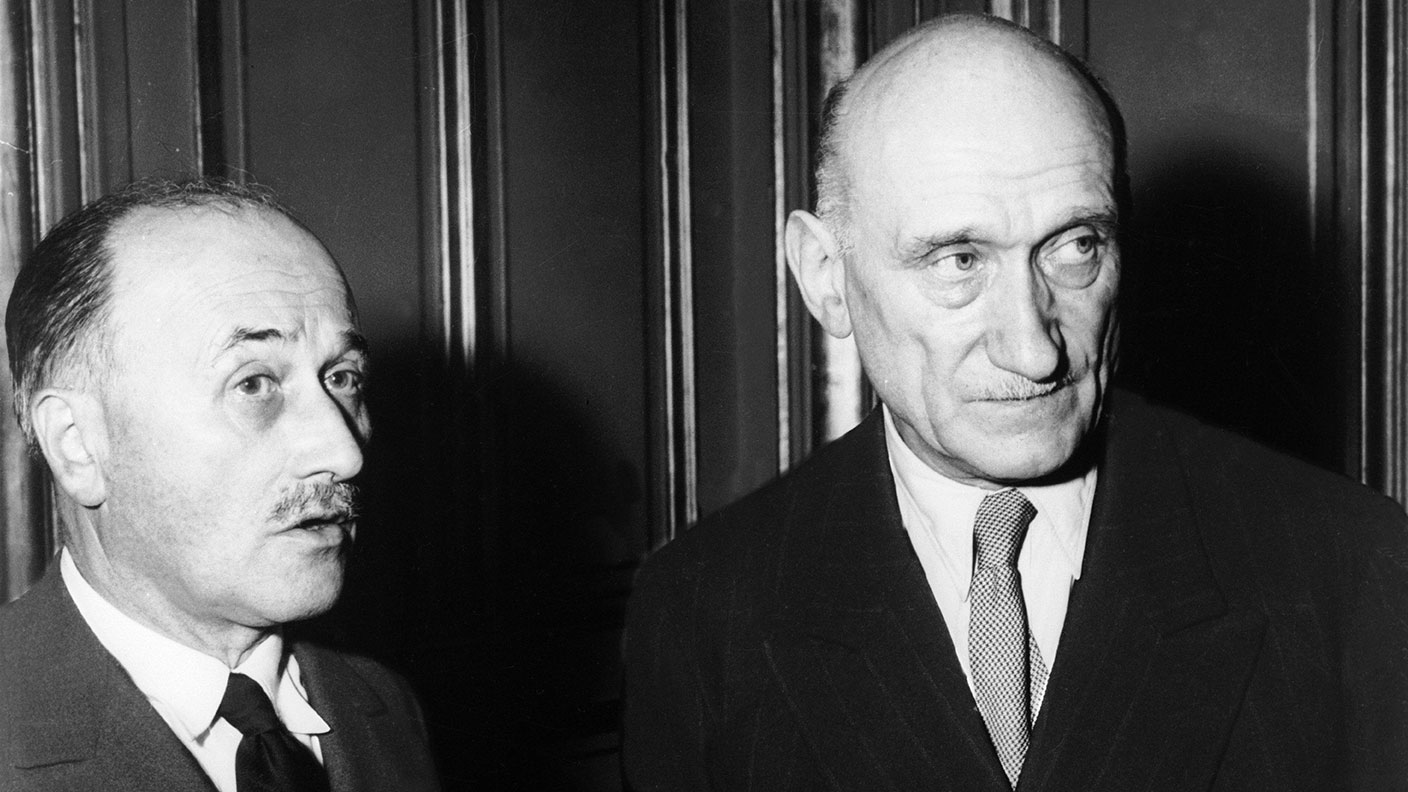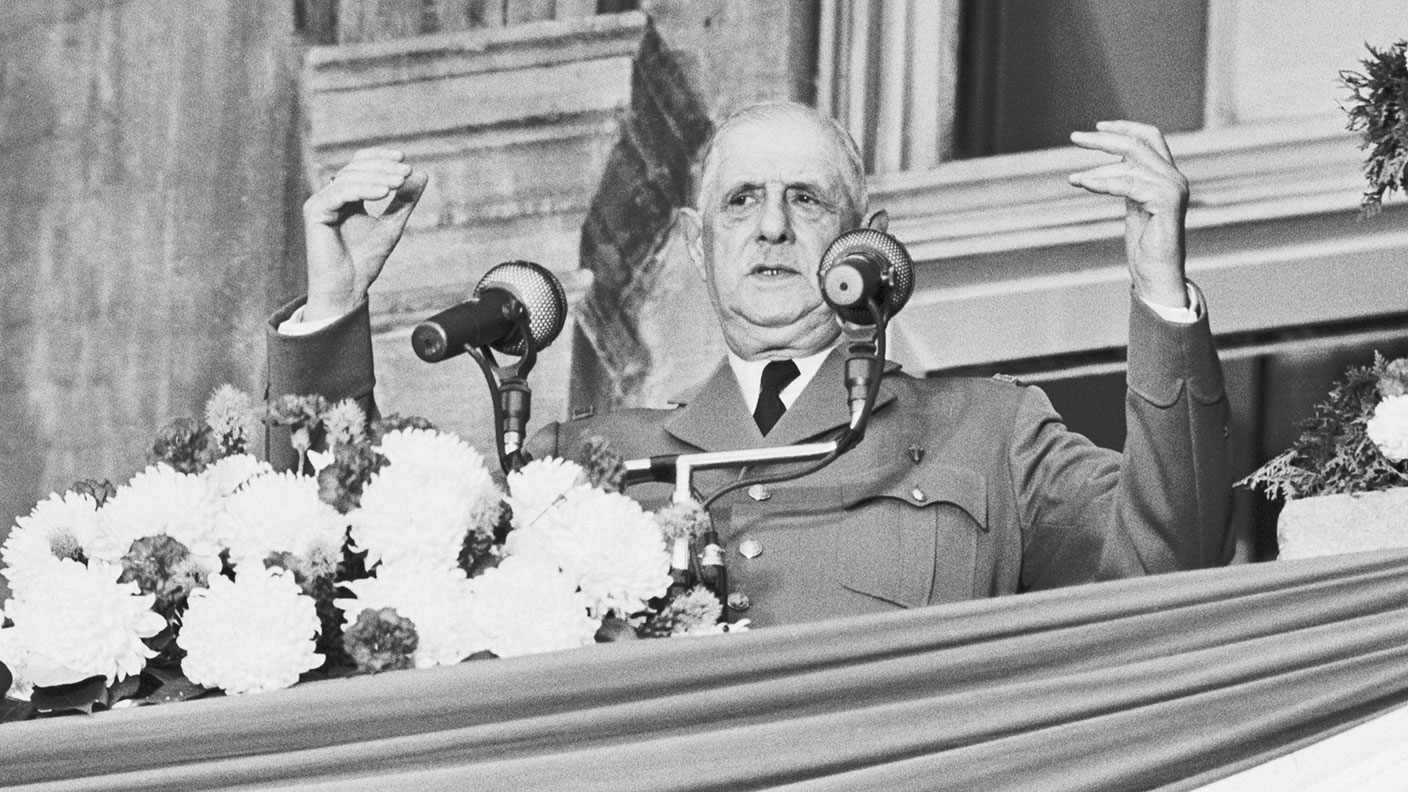
Get the latest financial news, insights and expert analysis from our award-winning MoneyWeek team, to help you understand what really matters when it comes to your finances.
You are now subscribed
Your newsletter sign-up was successful
Want to add more newsletters?

Twice daily
MoneyWeek
Get the latest financial news, insights and expert analysis from our award-winning MoneyWeek team, to help you understand what really matters when it comes to your finances.

Four times a week
Look After My Bills
Sign up to our free money-saving newsletter, filled with the latest news and expert advice to help you find the best tips and deals for managing your bills. Start saving today!
On 23 July 1952, the Treaty of Paris, which formally established the European Coal and Steel Community (ECSC), came into effect.
The treaty, which was signed by Belgium, France, West Germany, Italy, the Netherlands and Luxembourg, was intended to bring peace and economic prosperity to the continent in the aftermath of the Second World War.
It established a common market for coal and steel, originally proposed by French foreign minister Robert Schuman in 1950. Schuman thought that the joint production of coal and steel would make war "not merely unthinkable, but materially impossible".
MoneyWeek
Subscribe to MoneyWeek today and get your first six magazine issues absolutely FREE

Sign up to Money Morning
Don't miss the latest investment and personal finances news, market analysis, plus money-saving tips with our free twice-daily newsletter
Don't miss the latest investment and personal finances news, market analysis, plus money-saving tips with our free twice-daily newsletter
With its headquarters in Brussels, the ultimate aim of the ECSC was to create a United States of Europe' governed by supranational institutions. And gradually, the ECSC would indeed morph into the European Union.
In 1957, the Treaty of Rome created the European Economic Community, which broadened the scope of co-operation, and allowed for the free movement of all goods, services and people across borders.
In 1973 came the EEC's first expansion, when Denmark, Ireland and the UK joined. Greece joined in 1981, followed five years later by Spain and Portugal. Austria, Finland and Sweden joined in 1995, and in 2004, eight former Eastern Bloc countries, plus Cyprus and Malta, joined. Bulgaria and Romania became members in 2007, and Croatia in 2013.
The ECSC was finally disbanded in 2002.
Today, the EU's 28 member states have a combined population of 503 million some 7% of the world's population. Its budget in 2014 was €142.6bn. By 2020, that is projected to rise to €167bn.
Get the latest financial news, insights and expert analysis from our award-winning MoneyWeek team, to help you understand what really matters when it comes to your finances.

-
 Should you buy an active ETF?
Should you buy an active ETF?ETFs are often mischaracterised as passive products, but they can be a convenient way to add active management to your portfolio
-
 Power up your pension before 5 April – easy ways to save before the tax year end
Power up your pension before 5 April – easy ways to save before the tax year endWith the end of the tax year looming, pension savers currently have a window to review and maximise what’s going into their retirement funds – we look at how
-
 27 November 1967: Charles de Gaulle vetoes Britain's entry to the EEC
27 November 1967: Charles de Gaulle vetoes Britain's entry to the EECFeatures On this day in 1967, French president Charles de Gaulle vetoed Britain's attempt to join the European Economic Community, claiming Britain didn’t agree with the core ideas of integration.
-
 16 September 1992: Black Wednesday sees sterling crash out of the ERM
16 September 1992: Black Wednesday sees sterling crash out of the ERMFeatures On this day in 1992 – 'Black Wednesday' – the value of the pound crashed as currency speculators sold, dumping sterling out of the European Exchange-Rate Mechanism
